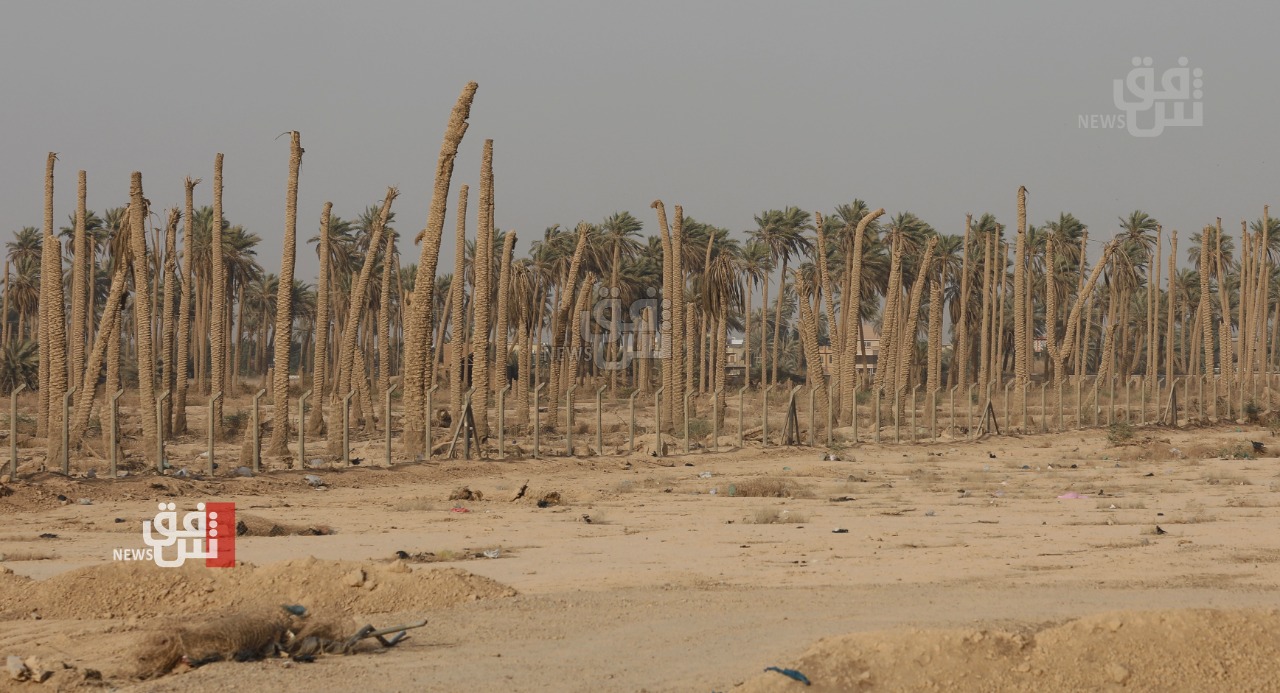Shafaq News/ Iraq is intensifying itsresponse to a deepening land-use crisis as agricultural areas continue to beconverted for non-agricultural use. With farmland vanishing under both legaland illegal development, authorities are tightening controls and reinforcingstate oversight of land classification.
Fertile Ground Lost to Expansion
Iraq’s farmland is under mounting pressurefrom unregulated development, rapid population growth, and weak enforcement ofland-use regulations. In central provinces such as Baghdad, orchards andcultivated fields are increasingly being replaced by informal housing andspeculative real estate projects, eroding the agricultural base and shrinkinggreen cover.
According to Ibtisam Al-Hilali, a memberof the Parliamentary Agriculture and Water Committee, real estate investmenthas played a major role in this trend. “These projects have significantlycontributed to the destruction and fragmentation of farmland,” she told ShafaqNews agency.
However, the impact extends beyond landavailability. Agricultural expert Khattab al-Damen warned that the continuedloss of farmland—particularly in areas adjacent to rivers, where crops liketomatoes and potatoes are grown—is directly undermining Iraq’s food productioncapacity.
“This reduces space for agriculturalactivity and limits production,” he noted.
The country also risks growing reliance onfood imports, which could deplete foreign currency reserves and increaseeconomic vulnerability. The environmental consequences are equally concerningas the removal of orchards and green spaces accelerates desertification,worsens air quality, and raises urban temperatures. Al-Damen emphasized thatfarmland serves not only economic functions but also acts as a criticalecological buffer.
Governance Failures Deepen the Crisis
The problem is exacerbated by fragmentedgovernance and overlapping institutional responsibilities. Al-Damen remarkedthat multiple ministries are involved in land management, yet often operatewith little coordination.
“The Ministry of Housing expandsresidential zones. The Ministry of Planning manages classification,” he toldShafaq News, asserting, “The result is inconsistency and delay.”
Additionally, provincial governments andmunicipal authorities, which are responsible for reallocating land, facepolitical constraints and limited administrative capacity. A housing planintroduced by Prime Minister Mohammed Shia al-Sudani aims to allocate andrehabilitate land for residential development, but progress has been slow.
In the absence of timely implementation,investment licenses for construction on farmland continue to be issued,compounding the crisis. Al-Damen warned that removing illegal housing alreadybuilt on farmland could trigger public unrest, further limiting thegovernment’s ability to reverse past violations.
Legal Barriers Tighten on Land Conversion
In response to these mounting pressures,Iraqi authorities have reinforced legal measures to prevent further farmlandloss. Deputy Minister of Agriculture Mehdi Saher al-Jubouri stated thatenforcement has intensified, leading to a noticeable decline in violations.
“There are specific laws that prohibitbulldozing orchards and removing trees,” he said, referencing Forests andOrchards Law No. 30 (2009), the Environmental Protection and Improvement LawNo. 27 (2009), and Cabinet Decision No. 50 (2016).
Violators, he clarified, now face contracttermination and legal proceedings, with enforcement handled by the Ministry ofInterior, provincial municipalities, and local agriculture directorates.
Al-Jubouri also stressed that protectingagricultural land is vital for both environmental stability and public health,citing Iraq’s global standing in palm cultivation and date production as a“strategic reason” to preserve orchards and green areas.
Meanwhile, efforts are aligned at thelegislative level. Al-Hilali confirmed that all investment projects onagricultural land have been suspended, and municipalities have been instructednot to approve any reclassification requests.
“A formal petition has been submitted tothe Prime Minister’s Office to maintain the legal agricultural status of theland, even in water-scarce regions,” she asserted.
Al-Hilali also pointed out that mostfarmland cannot be reclassified due to its legal registration, calling forurban expansion to be redirected toward desert areas instead.
Tree Campaign Seeks Environmental Recovery
To counter the environmental damage,authorities have launched a national reforestation effort. Al-Hilali explainedthat the campaign aims to plant one million trees across Iraq, distributed atno cost, arguing that the initiative is essential not only to restore lostgreenery but also to mitigate climate-related stress in urban zones.
“Green areas in residential zones are notjust cosmetic—they are necessary,” she noted.

